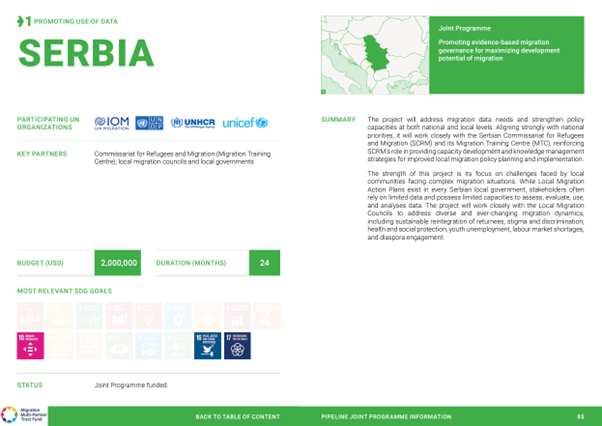Library
Serbia: Promoting Evidence-Based Migration Governance for Maximizing Development Potential of Migration
The project will address migration data needs and strengthen policy capacities at both national and local levels. Aligning strongly with national priorities, it will work closely with the Serbian Commissariat for Refugees and Migration (SCRM) and its Migration Training Centre (MTC), reinforcing SCRM’s role in providing capacity development and knowledge management strategies for improved local migration policy planning and implementation.
The strength of this project is its focus on challenges faced by local communities facing complex migration situations. While Local Migration Action Plans exist in every Serbian local government, stakeholders often rely on limited data and possess limited capacities to assess, evaluate, use, and analyses data. The project will work closely with the Local Migration Councils to address diverse and ever-changing migration dynamics, including sustainable reintegration of returnees, stigma and discrimination, health and social protection, youth unemployment, labour market shortages, and diaspora engagement.
Office of the United Nations High Commissioner for Refugees (UNHCR)
United Nations Children's Fund (UNICEF)
United Nations Development Programme (UNDP)
